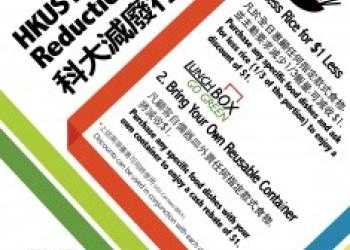News & Stories
2019
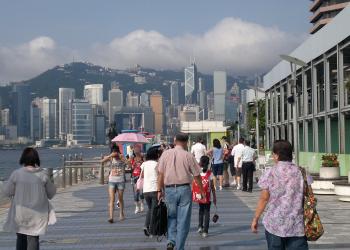
News
HK Set for Worst of It Amid Climate Change
This month, we experienced the hottest day of the year as temperatures in Hong Kong reached 35.1 degrees Celsius.
Countries across western Europe also struggled in record-breaking temperatures recently, with France hit the worst at 45.9 degrees in June.
The grim situation appears to have been a repeat of last year's conditions.
Although there are ongoing indepth analyses and further studies to examine the causes of individual extreme temperature events, many experts believe that extreme heat waves would not be feasible without anthropogenic climate change, meaning human activities are the main culprit for global warming ravages.
Such an assumption has been proven by climate models - a complex computer simulation of physical processes and mathematical formulae used mainly to predict climate and understand how the climate system responds to elevated greenhouse gas emissions.
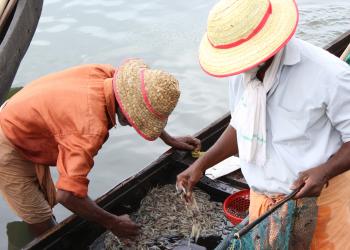
News
Treading Water on Sustainable Fisheries
Our fishery gave birth to a love of seafood, but it is also contributing to the global fish stocks decline.
We degraded it through overfishing, pollution and reclamation before building a fleet to ravage fisheries in other places.
Many cities have actually done the same. Ironically, calls to save global fish stocks come from cities that sacrificed their own fisheries.
Yet, Hong Kong also shows the way to a solution. It retains a resilient population of people who fish, those with the expertise and toughness to build a sustainable fishery, that is, such as those where catch volume and fishing practices allow for continual regeneration of stock, while enabling fishers to achieve a decent standard of living.
People in the industry will overfish and abuse the ecosystem to provide more income if they can't afford a living.
But our highly adaptable fishermen can demonstrate a global model for sustainable fishery.
2018

News
Joint campaign by eight universities to reduce plastic straws
Eight UGC-funded universities will launch a joint environmental campaign “UNIfy: Skip the Straw” on March 12 to reduce single-use plastic straws.
The Campaign signifies the joint efforts of City University of Hong Kong, Hong Kong Baptist University, Lingnan University, The Chinese University of Hong Kong, The Education University of Hong Kong, The Hong Kong Polytechnic University, The Hong Kong University of Science and Technology, and The University of Hong Kong to reduce plastic waste.
The universities will hold a “No Straw Week” or “No Straw Day” on their campuses during the week of March 12-16, where campus catering outlets will only offer straws when requested. Other activities include film screenings, zero waste markets and reusable straw giveaways.
The universities have also pledged to introduce long-term measures including regular awareness campaigns and no straw days, or a campus-wide ban of plastic straws.
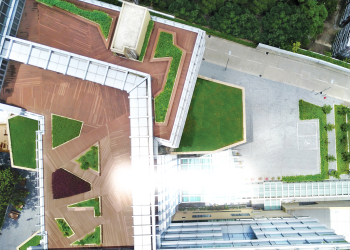
News
HKUST Continues Drive To Be Green Champion
While HKUST is renowned for its research and academic acumen, many do not know about its efforts to be one of the greenest universities in Hong Kong. In the past year, HKUST has continued hard work to be an environmental champion, and have achieved much in this regard.
Among the environmental milestones for this year are several community-driven initiatives. The HKUST Green Team, a 100% student and staff-driven initiative, launched a Lunch Boxes Go Green Campaign, encouraging the community to bring reusable containers when buying takeaway food. A strong response saw more than 2,500 disposable boxes saved.
2017

News
Sustainability Lies At The Heart Of Our Vision
Committed to developing an environmentally-friendly campus, HKUST, a world-class research university on science and technology, aims to take a leadership role in demonstrating and promoting sustainability to the wider community.
A notable example is the seawater-cooled central chilling system adopted by HKUST from its earliest days to provide air-conditioning for the main Academic Building. This pioneering technology has since been extended to the new eight-story Cheng Yu Tung Building (CYT) by expanding the capacity of the original chiller plant to create a district cooling system, thereby maximizing efficiency and reducing our carbon footprint.
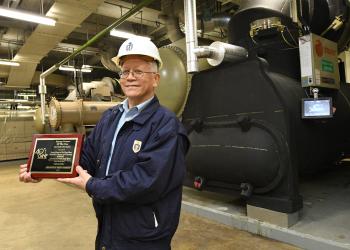
News
HKUST Wins Asia Pacific Region Award for Remodeling Central Chiller Plant that Saves Millions of Dollars and Over 20 Percent of Energy Consumption
The Hong Kong University of Science and Technology (HKUST) has won the 2016 Energy Project of the Year Award for the Asia Pacific Region, conferred by the Association of Energy Engineers (AEE) in recognition of its project to upgrade the University’s central chiller plant into a district cooling system, which saves millions of dollars in costs and energy consumption.
Seawater-cooled central chilling was a pioneering technology which HKUST adopted since its early days to provide air-conditioning for its Academic Building. When the new eight-story Cheng Yu Tung Building (CYT) was under planning in 2012, the University decided to expand the capacity of the original plant, instead of building a new air cooling system, to maximize efficiency and reduce carbon footprint.
2016

News
It Takes a Forest
Although air-conditioning is a blessing for office workers, it does have troublesome side effects. Carbon dioxide accumulates and oxygen levels drop in air-conditioned offices throughout the day, making it difficult to focus, promoting tiredness and generating anxiety.
Aware of this noxious situation, Dr Zhang Di (Ph.D., Bioengineering, 2014), and the founding members of NeoForest developed a 40 square meter photosynthetic air purifier. It uses microalgae instead of filters to purify air. The microalgae perform photosynthesis that generates oxygen and cleans up carbon dioxide and various air pollutants, which effectively combat the often-seen air conditioning syndrome in many offices that hinders the mind to think and respond.







